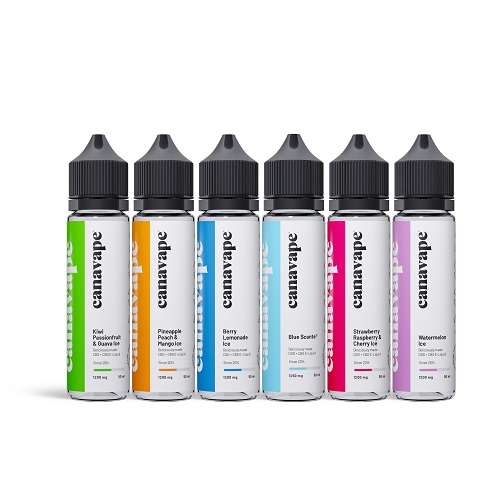
In recent years, CBD e-liquid has gained significant attention as a potential solution for those seeking alternative health benefits without the psychoactive effects associated with cannabis.
Of course the main question on everyones mind is… Does CBD E-liquid work?
As the wellness industry continues to expand, many are curious about the genuine efficacy of CBD e-liquid and whether it truly delivers on its promises.
From alleviating anxiety to providing relief from chronic pain, the claims surrounding this novel product are varied and plentiful.
In this article, we will delve into the science behind CBD e-liquid, explore its purported benefits, and consider the experiences of users who have turned to this popular supplement.
Join us on a journey to uncover whether CBD e-liquid is a true elixir or simply another fleeting trend in the world of wellness.
As curiosity around CBD e-liquid grows, it’s important to understand what this product entails and how it differs from other CBD forms.
This section will provide a foundation by explaining the essential components and scientific principles that underpin CBD e-liquid, setting the stage for an informed discussion on its benefits and usage.

CBD e-liquid, also known as CBD vape juice, is a specially formulated liquid used in e-cigarettes or vape pens.
Unlike traditional e-liquids, this variant contains cannabidiol (CBD), a non-psychoactive compound found in cannabis plants.
CBD e-liquid is crafted by combining CBD extract with a carrier liquid, such as propylene glycol (PG) or vegetable glycerin (VG).
This mixture allows the liquid to be vaporised and inhaled through a vape device.
The popularity of CBD e-liquid stems from its perceived health benefits and the convenience of vaping.
Users often prefer this method due to its ease of use and rapid delivery of effects. However, it is crucial to choose high-quality products to ensure safety and efficacy.
The scientific foundation of CBD lies in its interaction with the body’s endocannabinoid system (ECS).
Cannabidiol influences various physiological processes, including mood, pain sensation, and immune response, without the psychoactive effects of THC.
Studies have shown that CBD binds indirectly to ECS receptors, enhancing the body’s ability to regulate key functions.
This interaction is believed to underlie many of the therapeutic claims associated with CBD.
Research continues to explore the full scope of CBD’s impact on human health, with promising results in areas like inflammation reduction and anxiety mitigation.
However, more extensive clinical trials are needed to substantiate these findings and establish comprehensive guidelines for use.
| CBD Form | Characteristics | Advantages |
|---|---|---|
| CBD E-Liquid | Vaped, quick absorption | Rapid effect, user-friendly |
| CBD Oil | Ingested or sublingual, slower absorption | Longer-lasting effects |
| CBD Edibles | Consumed, slow absorption | Discreet, easy to dose |
CBD e-liquid offers a unique experience compared to its counterparts. Its vapourisation method allows for quicker absorption into the bloodstream, providing rapid relief.
Conversely, CBD oil is often used for its more sustained effects due to slower metabolism.
Edibles, meanwhile, offer a discreet and convenient way to consume CBD, though they require more time to take effect.
Choosing the right form depends on individual preferences and specific health goals.
Each has its pros and cons, but understanding these differences can aid in making an informed decision.
CBD e-liquid is heralded for its potential health advantages. This section delves into how it may alleviate pain, reduce anxiety, and improve sleep quality.
By examining the evidence, we aim to provide a clearer picture of what users can expect from incorporating CBD e-liquid into their wellness routines.
CBD is widely regarded for its anti-inflammatory properties, which may help alleviate chronic pain.
By interacting with receptors in the ECS, CBD modulates pain perception and reduces inflammation.
Research suggests that CBD could be beneficial for conditions like arthritis, where inflammation plays a significant role.
Anecdotal evidence from users also highlights its efficacy in managing pain from injuries or surgeries.
However, while promising, the evidence is largely anecdotal or preliminary.
More robust clinical trials are required to confirm these benefits and establish appropriate dosing guidelines for pain management.
Many users turn to CBD e-liquid for its potential to reduce anxiety and stress. CBD is thought to influence serotonin levels, a neurotransmitter linked to mood regulation.
Studies indicate that CBD may reduce social anxiety and improve overall mood.
Users often report feeling calmer and more relaxed after vaping CBD e-liquid, which can be particularly beneficial in high-stress situations.
Despite positive reports, more scientific research is needed to fully understand its impact on anxiety disorders.
As with any supplement, consulting a healthcare professional is advisable for personalised advice.
CBD’s calming effects extend to sleep improvement, offering an alternative for those struggling with insomnia.
By reducing anxiety and promoting relaxation, CBD may help users fall asleep more easily and enjoy better quality rest.
Some studies suggest that CBD can increase total sleep time and decrease interruptions. Users often find it beneficial in establishing a healthier sleep routine.
However, individual responses vary, and it’s important to experiment with dosage and timing to achieve optimal results.
As always, professional guidance is recommended when integrating CBD into a sleep regimen.
Understanding how CBD e-liquid operates in the body is crucial for appreciating its potential effects.
This section explores its interaction with the endocannabinoid system, its bioavailability, and factors affecting its effectiveness.
The endocannabinoid system (ECS) is a complex network of receptors and neurotransmitters that regulates various bodily functions.
CBD interacts with this system by binding to receptors, chiefly CB1 and CB2, which play roles in mood, pain, and immune responses.
Unlike THC, which binds directly to CB1 receptors, CBD influences these receptors indirectly, modulating their activity.
This action is believed to contribute to CBD’s therapeutic effects, such as reducing inflammation and anxiety.
Understanding this interaction is key to appreciating how CBD e-liquid can impact health and wellness.
It underscores the importance of further research to uncover the full potential and limitations of CBD.
Bioavailability refers to how much of a substance is absorbed into the bloodstream.
CBD e-liquid is typically inhaled, offering a higher bioavailability than other methods like edibles or topicals.
Despite its advantages, the bioavailability of CBD e-liquid can vary based on factors such as the device used and individual metabolism.
Understanding these nuances can help users optimise their CBD experience.
Determining the right dosage of CBD e-liquid is crucial for achieving desired effects.
However, optimal dosages vary widely based on individual factors such as body weight, metabolism, and the condition being addressed.
Given the variability in individual responses, a flexible approach is recommended. Monitoring your experience and adjusting as necessary can help ensure effective use of CBD e-liquid.
While CBD e-liquid offers potential benefits, it’s important to be aware of possible side effects and regulatory issues.
This section highlights common side effects, safety concerns, and misconceptions surrounding CBD usage.
Though generally well-tolerated, CBD can rarely cause side effects in some users. These may include:
These side effects are typically mild and often resolve with continued use.
When taking cannabinoids orally like a CBD oil, It’s important to start with low doses to assess tolerance and minimise unwanted effects.
In rare cases, CBD may interact with medications when taken orally, so taking this into consideration is wise, especially for those on prescription drugs.
The regulation of CBD products varies globally, creating challenges in ensuring consistent quality and safety.
In the UK, CBD products must meet specific standards, but oversight can still be lacking.
Understanding the regulatory landscape is key to making informed purchasing decisions and ensuring the safe use of CBD e-liquid.
Misunderstandings about CBD can lead to hesitancy or misuse. Common misconceptions include:
Educating oneself about CBD’s properties and limitations can help manage expectations and encourage responsible use.
Selecting the right CBD e-liquid involves careful consideration of several factors.
This section provides guidance on choosing high-quality products, understanding purity standards, and identifying safe purchase sources.
When choosing CBD e-liquid, consider the following factors:
By prioritising these elements, you can select a product that suits your preferences and health objectives.
Ensuring the quality and purity of CBD e-liquid is paramount. Here are key standards to look for:
Adhering to these standards helps ensure that the CBD e-liquid you choose is both safe and effective.
To purchase CBD e-liquid safely, consider:
Buying from trusted sources like Canavape.co.uk minimises the risk of obtaining substandard or unsafe products, ensuring a safer CBD experience.